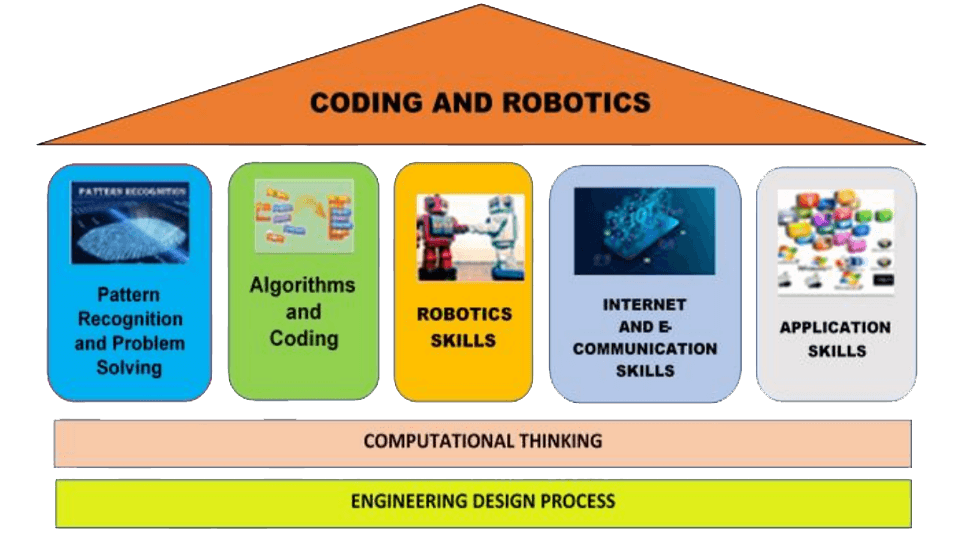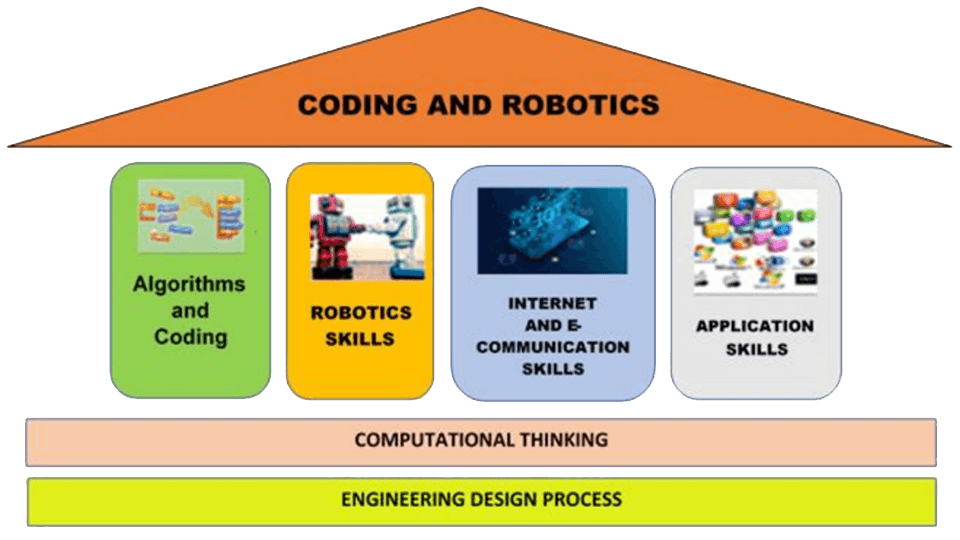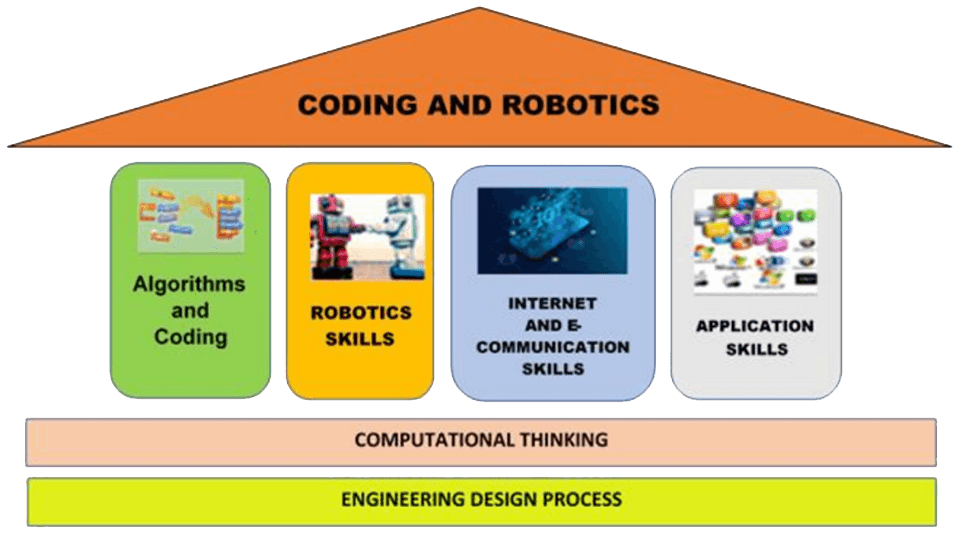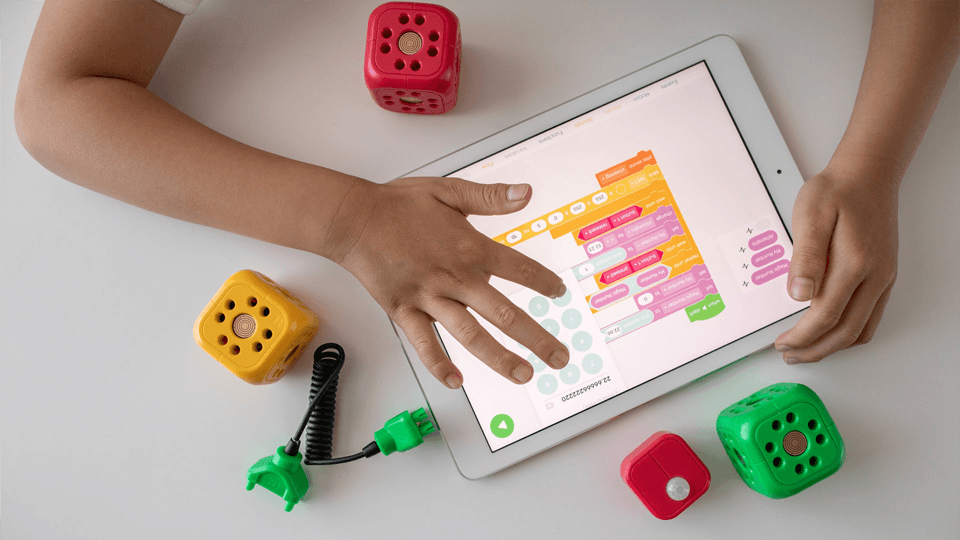Kids today need to learn coding in order to stay competitive in current and future job markets. Many industries today make use of programming in one form or another. On top of this, coding has other benefits such as improved mathematics, problem solving skills and creativity.
Towards the end of 2021, the Department of Education began piloting the draft Coding and Robotics Curriculum for Grades R-3 and 7. The full-scale implementation for these grades is planned for the 2023 academic year.
The pilot for Grades 4-6 and Grade 8 is planned for this year (2022) and will be followed by a Grade 9 pilot in 2023. The full-scale implementation for Grades 4-6 and Grade 8 is planned for 2024, and Grade 9 in 2025.
Here is a summary of what will be taught in each phase.
Grade R to Grade 3:
For the foundation phase, Coding and Robotics has been split into five knowledge strands.

- Pattern Recognition and Problem Solving – Kids will learn to identify certain patterns as a part of the design and thinking process of computers. They will be able to identify repetitions and changes in patterns using physical objects and drawings.
- Algorithms and coding – This includes physical coding activities followed by digital coding on easy-to-learn platforms such as Scratch. They will learn how to convert basic algorithms into block-based code.
- Robotics skills – Learners will be introduced to systems involved with robotics. They will learn how to create logical steps for a robot to follow, basic mechanical systems including pulleys, gears and linkages and basic electrical circuits.
- Internet and e-Communication Skills – This will prepare learners to interact safely in a digital online and offline world. They will learn about their digital identity, security and safety, types of e-communication, basics of the internet and the safe use of web browsers to search for information.
- Application skills – This will include the teaching of basic text editing and spreadsheet applications, as well as the use of digital devices.
Grade 4 to Grade 6:
For the intermediate phase, the subject has been organized into four knowledge strands.

- Algorithms and coding – Algorithm and coding programming skills will be primarily developed by using a block-based coding platform such as Scratch. They will learn about variables, strings, integers, operators, conditional statements, loops and event triggers.
- Robotics skills – Learners will continue to learn systems involved with robotics. They will create more advanced steps for a robot to follow, continue with mechanical systems including pulleys, gears and linkages and will be introduced to microcontrollers and robotics block based coding.
- Internet and e-communication – Topics will include digital citizenship, Internet use, concepts of piracy and copyrights as well as cloud computing, automation digital communication and the internet of things (IoT).
- Application skills – Topics will include text-editing, spreadsheets, multimedia editing and computer-aided drawing.
Grade 7 to Grade 9
The senior phase uses the same four knowledge strands as the intermediate phase.

- Algorithms and coding – Algorithm and Coding programming skills in the senior phase will move towards a line based programming interface. They will learn about flow diagrams, simple binary concepts (Logic Gates and Truth Tables) and more advanced programming concepts.
- Robotics skills – Learners continue with mechanical and electrical engineering systems. They will learn how to use line based programming for robotic systems and begin using computer aided design (CAD).
- Internet and e-Communication Skills – Learners will begin learning about cyber threats, authentication, viruses, augmented and virtual reality, machine learning, social media and data processing techniques.
- Application skills – Learners will be expected to engage with applications that build on data analysis and website development skills. This includes HTML and CSS, as well as spreadsheet applications.
What do you think of the proposed curriculum? Let us know in the comments.
We are currently working on tools that will include everything in this curriculum. These new tools will help to streamline the implementation of this new curriculum. Please enter your email below if you would like to be notified when these new tools launch.
Download the full proposed curriculum:
Additional Sources:
https://www.education.gov.za/CodingRoboticsPilot.aspx
https://www.education.gov.za/CodingandRoboticsPilotProject.aspx

